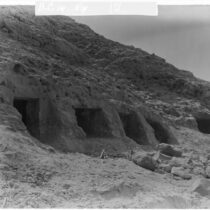In spite of the progress the Modern Greek State made in the reign of King Otto, the needs to be satisfied in the years of his successor King George I were still many and imperative. Such were, among others, the housing of the public services in Athens – the Voulefterion (Parliament) being an urgent case, since its building had been destroyed by fire- and the exhibition of the Olympia, whose housing proved to be quite problematic. Private mansions continued to shelter public services, such as the National Bank, or to house temporary royalties, like Constantine, the heir to the throne, and Princess Sophia, not to mention that the sessions of the courts of law were also held in private buildings or churches. However, it is quite indicative that most of the spacious public edifices originally erected for other purposes, such as the University, the Academy and the Polytechnic of Athens, finally housed antiquities, thus meeting other needs. Finally, even hospitals occupied occasionally public buildings of different function. The study of the housing of public services in Athens reveals that the practical choices of the officials of the Modern Greek state were mainly affected by the conviction that the establishment of continuity between ancient and modern Greece was the major priority. This continuity demanded the erection of edifices-monuments of reference to the glorious past, regardless of their practical usefulness. It is interesting to note that the majority of citizens were more than willing to make the necessary sacrifices for the fulfillment of this “vision”.
The housing of public services in Athens in the reign of King George I
30 Aug 2012
by Archaeology Newsroom
- A
- A
- A


